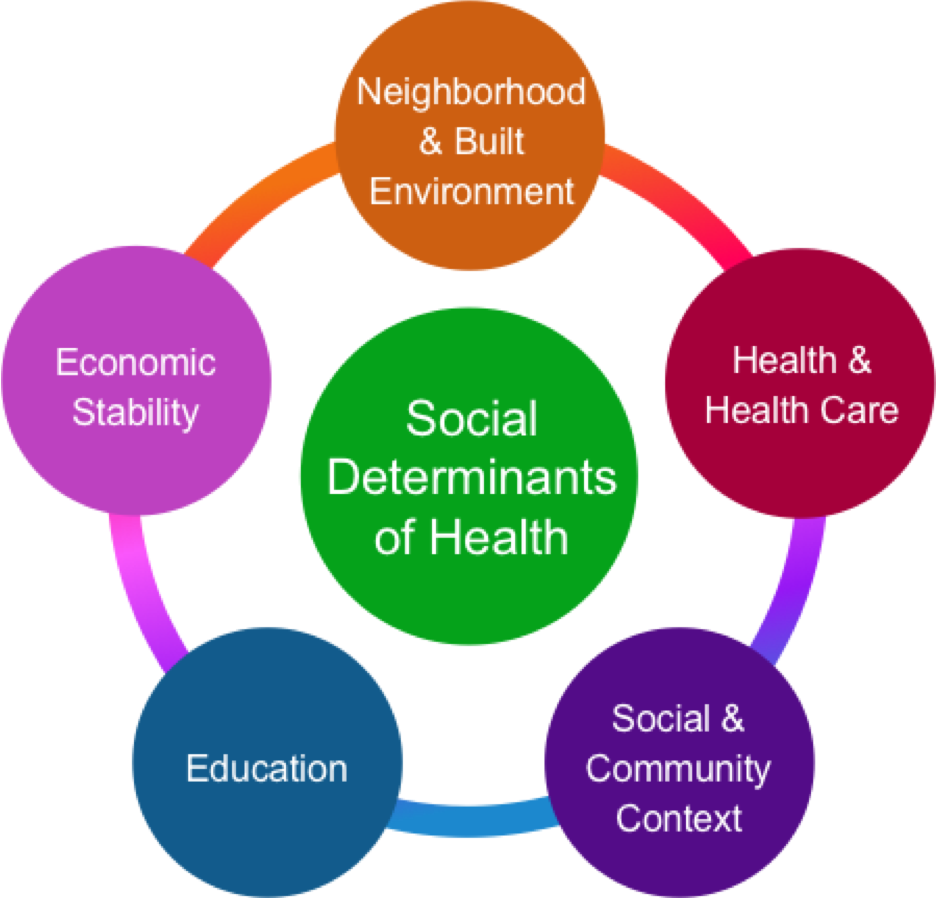Social Determinants of Health
Factors influencing health can be categorized into five determinants—genetics, behavior, physical environment, social factors, and medical care.21
Social Determinants of Health refers to the social factors influencing health, such as the environments where people live, learn, work, and play.22 These include education, occupation and income, which collectively determine one’s socioeconomic status.23
The social determinants of health have a profound impact on health and disease.24 In fact, social factors can impact health more profoundly than one’s access to medical care. Medical care alone often cannot outweigh the impact that social factors have on health.25
Case studies examining hospital utilization and health care costs for chronically homeless individuals reinforce the idea that social factors drive poor health outcomes. To effect a positive change in health, homelessness needs to be treated as a medical and social issue—with attention to housing and other social determinants.
The unsheltered routinely suffer:27
- Severe material deprivation.
- Housing instability.
- Food insecurity.
- Lack of access to health care.
- Psychological trauma—from childhood to adulthood.
- Hidden disabling conditions.
- Tri-morbidity—untreated physical health, mental health and substance use disorders.
- Economic instability—unemployment and lack of resources.
- Domestic violence.
- Social disconnection.
- Lack of resources for self-care.
Homelessness forces individuals into survival mode, whereby their most immediate needs take priority over other concerns. To truly provide treatment and improve their health, the most basic material and social needs of the patient be addressed first. In our experience, the top issues encountered are food insecurity, trauma, and a lack of housing.
